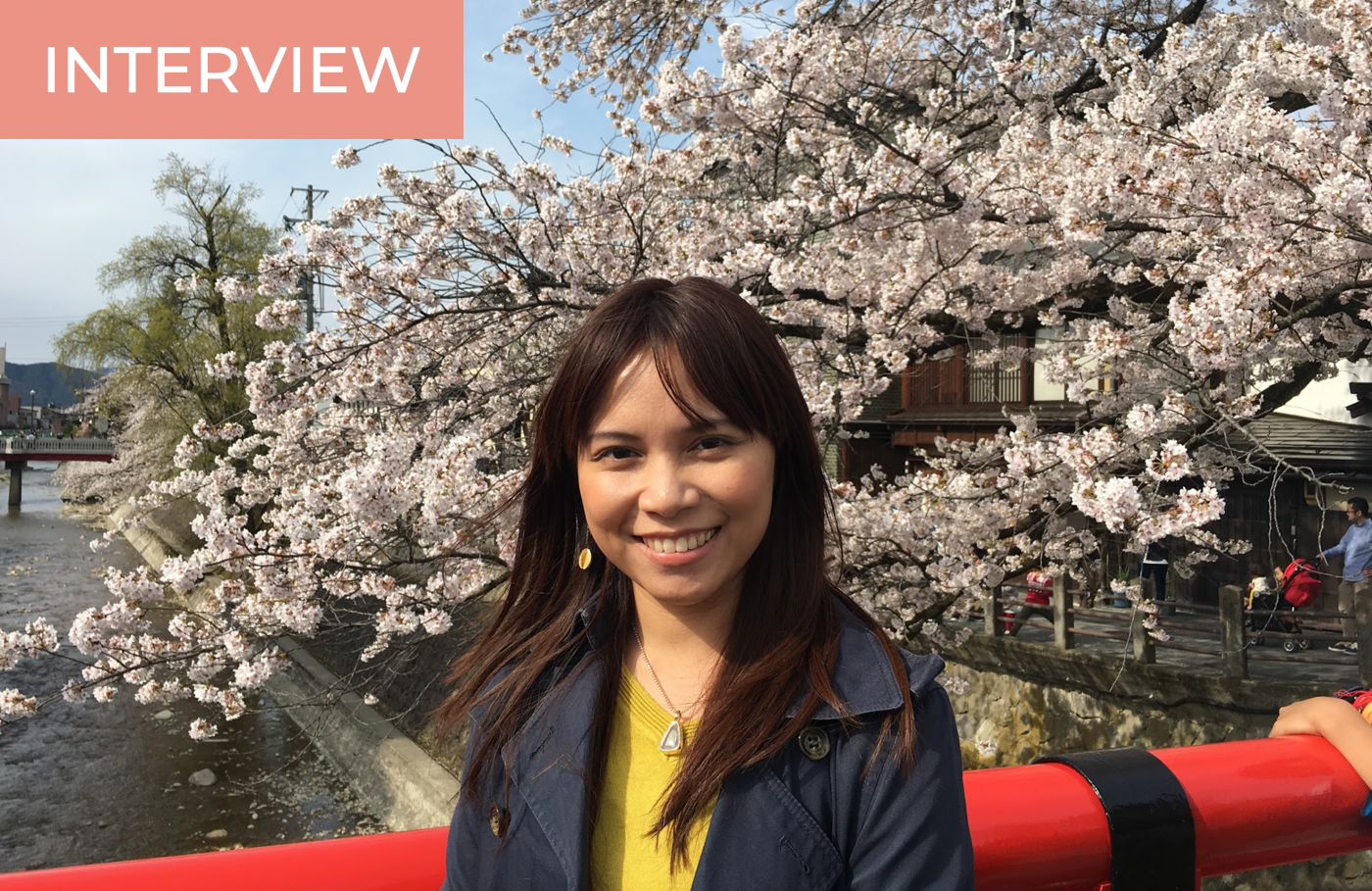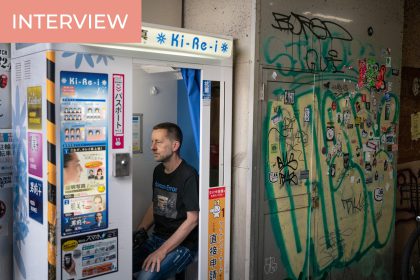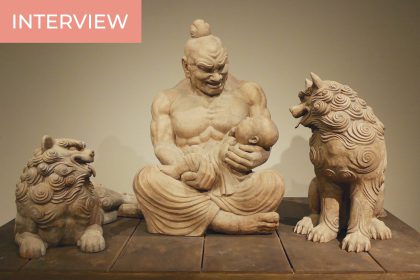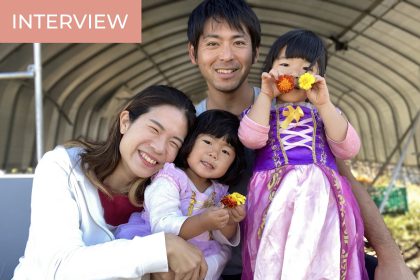Sathi (full name Sathirat Srimaneelert) is a dynamic and cheerful Thai national. After studying and living in Japan for more than 10 years, she decided to go back to her home country. There, she built a company around what she does best: reducing the culture gap between the two countries. In this interview, she tells us how her diverse experiences in Japan have shaped her career path and how it changed her way of approaching life.
Could you please explain what your job consists of?
ANNGLE Thailand is doing two types of business. The first is giving support to Japanese companies in many different forms, such as establishing companies, marketing, help in recruiting…
The second is managing the internet cross-media called ANNGLE. It’s divided into two websites. On the Thai language website, we provide information about Japan to Thai readers. On the Japanese language website, we provide information and news about Thailand to Japanese readers.
I was the one who created this company when I came back from Japan five years ago. Initially, the company had a different name, “Top 2 Connect.” Now, most people call me Sathi, but I have another nickname, which is “Top.” [laughs] So the idea behind the first name of the company was “Top will connect the two countries of Thailand and Japan!” But having two different names for the two different sides of our business was confusing for our customers, so in the end, I decided to use ANNGLE for both.
How did you end up building this Japan-related business in Thailand?
I’ve studied in Japan for five years. I was a government scholarship student. After that, I worked in an IT company for three years. It was a very fulfilling programming job, but I started wanting to put the fact that I was Thai to good use. Then a person I considered as a mentor offered me to work in his consulting company. It was a small company, but he created a “Foreign Business Section” just for me. Since I was receiving stable pay each month, I was very motivated to generate earnings for the company. I did everything and anything I could think of: translation, interpretation, travel planning. I took part in lots of seminars to create a broad network.
Then, one day, I had the chance to help a Japanese company build an epilation salon business in Thailand. It was a considerable project. I translated the menu but also the contracts and manuals. I helped with marketing and finding customers. I also helped recruit the staff and did the interviews myself. After doing all of this, I stopped for a minute, and I realized I could do anything! [laughs] I always had the idea to create my own business someday, but I didn’t know what I really wanted to do. It’s the sum of my experiences and the fact I was allowed so much freedom in this small consulting company that helped me figure it out. I also knew I had the required skills. So, I came back to Thailand and started my own company.
Originally, ANNGLE media was created by Ken Yonezawa before we even met. Ken, who is now my husband, has been living in Thailand for more than 10 years. He created the Japanese version first, and then the Thai version of ANNGLE, for which he needed writers. He found me on Facebook when he was looking for Thai writers and sent me a message. The timing was great because I also wanted to find a way to offer information to Thai people based on my ten years of experience living in Japan. And actually, I had seen what Ken had been doing with ANNGLE, so I was happy he contacted me. The reason why he created this media is that he wanted to reduce the culture gap between Thai and Japanese people.
Also, all the writers at ANNGLE are Thai people who can speak Japanese. Ken wanted to provide a working opportunity for Thai people who could speak Japanese, other than translation or interpretation. Nowadays, the artificial intelligence behind automatic translation is constantly improving, and just having translation skills may not be enough in the future. He wanted to offer the opportunity to develop other kinds of skills.
Is there a message you would like to express through your work?
For ANNGLE media, I’d like to facilitate cultural understanding. The Thai and the Japanese have entirely different ways of working and ways of thinking. But since I know both countries well, I’d like to do what I can to reduce the gap between the two cultures.
For example, a few years ago, I connected a Thai company to a Japanese company to build a multistory parking lot. The Japanese company regularly sends supervisors to provide installation, but the workers are local Thai people. I go to provide translation and cultural support because it’s often hard for them to understand each other in terms of work and priorities. For example, the Japanese put security as the very first priority, even if the productivity is not as good that way. But in Thailand, it’s not the case yet. However, when I explain, it smooths things out.
What are your projects for the future?
I’d like to expand ANNGLE’s websites and reach more readers. We’re rebuilding our website differently. We’re also updating older content to increase the articles’ text and picture quality.
Is there an aspect of the Japanese way of thinking that you have adopted in your work or your everyday life?
Yes! Having lived in Japan for 10 years, I’ve noticed how much the Japanese value encounters and relationships. They have the expression, “ichi go ichi e,” which can roughly be translated as “once in a lifetime.” When you make a new encounter, you must cherish the person you’re talking to, because it might be a once-in-a-lifetime experience. I’m trying to stay conscious of this and integrate it into my everyday life.
There’s also another thing, called kotodama. The Japanese believe that words have power and what you say influences reality. If you say good things, good things will happen! [laughs] So I’m cautious of what I say or how I think. Even when bad things happen, I’m trying to find a positive way to look at it and express it. When you say something, your first audience is yourself. So if you say something negative, your thoughts will be invited to stay negative, too. Conclusion: let’s talk positively! [laughs]
Is there a concept close to “kokoro” in Thai culture?
Not really. It would be divided into different words and concepts. When translating, I have to use a different expression depending on the context. Actually, we have an article on ANNGLE in which we explain what kokoro is!
During our interview, I was amazed by Sathi’s good-humored character and positive attitude. When Sathi started working in a small consulting company, she got no instructions, and there was no business ready for her to take on. This could be very stress-inducing, maybe even discouraging for most young workers. However, Sathi took this as an opportunity: starting from scratch also meant the freedom to do whatever she could think of. As a result, keeping this positive mindset allowed her to find herself and her ideal career path, which she transformed into something meaningful.
In the end, I can’t help but wonder: has the kotodama concept influenced Sathi’s character, or did she feel attracted to it because it already reflected her view on life?
ANNGLE Thailand Official Website




